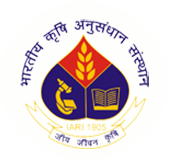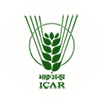GM food systems and their economic impact [electronic resource] Edited by T. Brankov, K. Lovre.
Material type: TextLanguage: English Series: CABI Biotechnology SeriesPublisher: Wallingford UK CAB International 2019Edition: 1Description: 220ppContent type:
TextLanguage: English Series: CABI Biotechnology SeriesPublisher: Wallingford UK CAB International 2019Edition: 1Description: 220ppContent type: - text
- computer
- online resource
- 9781789240559
- food security
- GEOs
- Anglophone Africa
- EC
- APEC countries
- food production
- OECD Countries
- trends
- food prices
- fertilizers
- European Union
- plants
- usage
- regulations
- USA
- EEC
- United States of America
- South America
- genetically modified food
- Africa
- genetically engineered organisms
- People's Republic of China
- Latin America
- Mediterranean Region
- GMOs
- genetically engineered foods
- trade agreements
- agricultural production
- fertilisers
- Africa South of Sahara
- Developing Countries
- foods
- agricultural policy
- Southern Africa
- GM foods
- Russian Federation
- food products
- Brazil
- genetically engineered plants
- India
- food biotechnology
- Europe
- China
- Commonwealth of Nations
- South Africa
- hunger
- Threshold Countries
- North America
- food contaminants
- trade relations
- history
- European Communities
- East Asia
- economic impact
- Russia
- genetic manipulation
- Asia
- Serbia
- crops
- Common Market
- genetically modified organisms
- rules
- America
- eukaryotes
- Srbija
- food crops
- pesticides
- transgenic plants
- food contamination
- subsaharan Africa
- South Asia
- genetically modified foods
- transgenics
- ingredients
- transgenic organisms
- Developed Countries
- Community of Portuguese Language Countries
- Southern Europe
- Balkans
- genetic engineering
- European Economic Communities
- environment
- genetically modified plants
The development of transgenic crops is revolutionary, but what does it mean for food production, prices and the environment? This is the first book to examine the economic evidence in a methodical way. It initially describes the historical evolution of biotechnology and defines key terms, before moving on to explore transgenic technology and food regime concepts. The book analyzes genetically modified organism (GMO) policy as part of overall agrarian policy, considering neoregulation in the USA, the EU, Brazil, Russia, China, India, South Africa and Serbia; as well as discussing agricultural performance, support and trade relations. The effect of transgenic food production on world food prices is also examined, along with food security at global and regional levels, and the links between GMOs and world hunger. The environmental implications of transgenic technology are considered through analysis of pesticide and fertilizer usage and efficiency, and pesticide consumption in GMO and non-GMO producing countries. Finally, the book considers the entry of transgenic ingredients into the food chain and lists the products affected. Key features:- Detailed analysis of economic data.- Comparison of international trends, including BRICS countries (Brazil, Russia, India, China and South Africa) and Serbia.- Evaluation of environmental and food security implications.- Glossary of important terms.This book will be valuable for agricultural economists, including students at Masters and PhD level. It will also be of interest to agricultural engineers, food technologists, nutritionists, industry representatives, policy makers, policy advisers and analysts and NGOs.


There are no comments on this title.